Young people are taking charge of tackling the global climate emergency -- starting today at the "Global Youth Summit on Net-Zero Future” (Climate x Summit) -- with a helping hand from the world's top universities and spurred by the United Nations and leaders from forward-thinking governments and organizations.
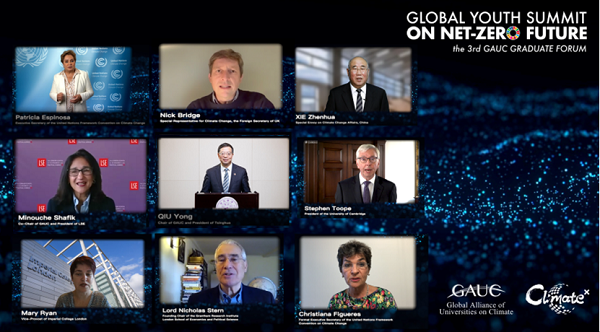
Climate x Summit will include more than 30 student-led events through November 5. More than 500 students are committed to this year's activities, which include climate-research competitions, a "hackathon," film premieres and solutions-oriented meetings on how to energize youth across the world.
The Summit is organized by the Global Alliance of Universities on Climate (GAUC), which has member institutions from six continents and was formed during a World Economic Forum meeting in Davos. The youth-led Climate x Summit starts just days before more than 100 world leaders are scheduled to meet in Scotland for the COP26 meeting on climate change.
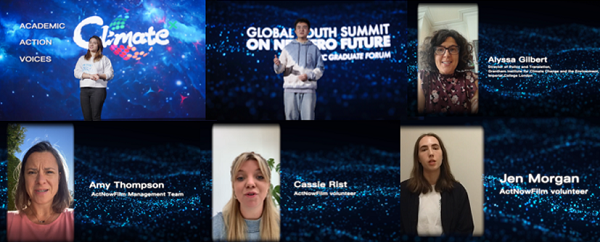
"We are at a crossroads of advancing action against the climate emergency in 2021. This summit is a springboard for the world's youths to undertake a more active role in mobilizing leadership and demonstrating the collective strengths of higher education institutions," according to the GAUC Alliance and Climate X Summit objective.
The centerpiece of the Climate X Summit is the "Three Tracks", comprising a climate research competition (Academic Track) co-organized by Columbia University, the University of Oxford, Yale University and Tsinghua University; a youth’s climate messaging project (Voice Track) organized by the University of Cambridge; and a mini-hackathon (Action Track) for climate change solutions organized by Imperial College London.
The mission of the Three Tracks is to share fresh concerns and ideas from across the world, come up with specific action plans that spark awareness, education and potential solutions to meet the goal set by Paris Agreement to limit global warming to well below 2, preferably to 1.5 degrees Celsius, compared to pre-industrial levels. Another goal is for young people to mobilize their collective power to pressure world leaders into policy action.
Among the policymakers and leaders from GAUC’s member universities speaking at the opening ceremony were Patricia Espinosa, Executive Secretary of the United Nations Framework Convention on Climate Change; Qiu Yong, Chair of GAUC and President of Tsinghua University; Minouche Shafik, Co-Chair of GAUC and President of LSE; Stephen Toope, President of the University of Cambridge; Mary Ryan, Vice-Provost of Imperial College; Nick Bridge, Special Representative for Climate Change, Foreign Secretary of UK; and Xie Zhenhua, Special Envoy on Climate Change Affairs, China, Lord Nicholas Stern, Founding Chair of the Grantham Research Institute at London School of Economics and Political Science, and Christiana Figueres, Formal Executive Secretary of the United Nations Framework Convention on Climate Change.
Climate x Summit is a collective endeavor by GAUC’s 15 member universities, with the strategic partnership of COP26 Universities Network, a growing group of around 80 universities in the UK, the host country of the COP26.
The Climate x Summit gains widespread support from diversified stakeholders, including Bloomberg LP as the Convening Partner, academic support from Elsevier and Springer, COP26 venue support by C-Team affiliated with the Vanke Foundation, and technical support by Global MOOC Alliance.
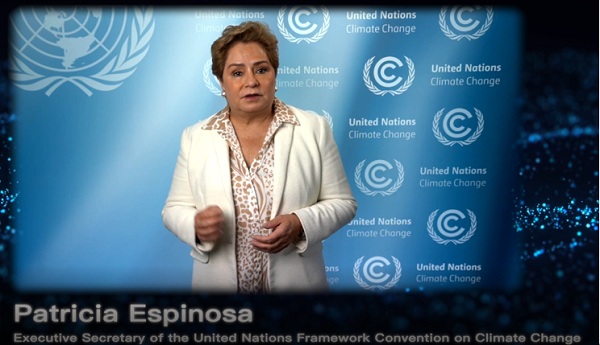
Patricia Espinosa, Executive Secretary of the United Nations Framework Convention on Climate Change, said that COP 26 is now only a few short weeks away.
"The decisions made in Glasgow will have an impact upon both our short-term and long-term futures. It's essential we achieve success not only with respect to completing outstanding work, but that Parties continue to build climate action demanded by billions throughout the world, ” she said.
"Your voices are essential. I specifically thank you for your efforts to achieve a net zero future,” she added.
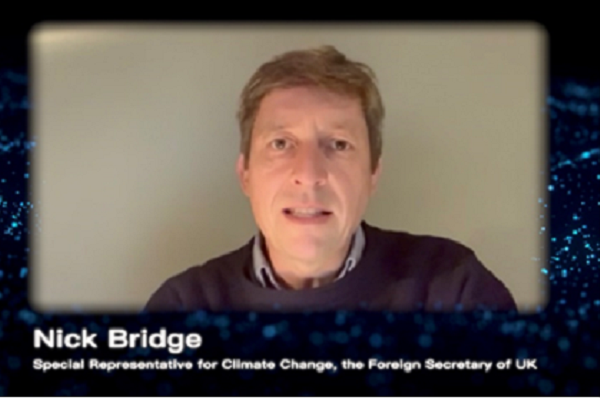
"You are already the most powerful voice I believe in this agenda. Make your voice heard, in your family, in your community, in your university and more widely. You are the future. We need you to be working together, collaborating in that positive, dynamic spirit. Think about a better way and drive that forward," said Nick Bridge, Special Representative for Climate Change, Foreign Secretary of UK.
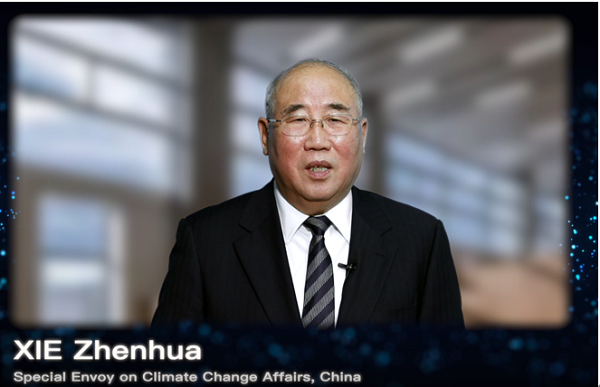
Xie Zhenhua, Special Envoy on Climate Change Affairs, China, said that youth play an extremely important significant role in the process of achieving carbon neutrality goals.
“They are not only contributors of innovative solutions, but also practitioners to achieve the goal of carbon neutrality, and bearers of climate risks and losses,” Xie said, adding that the participation of more young people in the cause of addressing climate change is essential for the world to embrace a carbon neutrality future and embarking on a long-term sustainable development path.
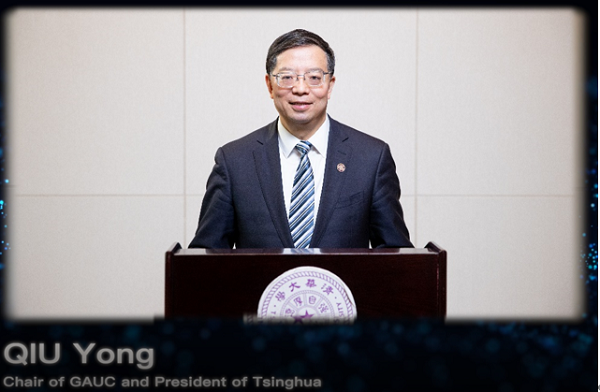
In his remarks, Qiu Yong, Chair of GAUC and President of Tsinghua University, said that to address the global challenge of climate change, more and more entities represented by countries, regions, cities, private sectors and universities are taking active actions, with youth as the stanch force for achieving a zero-carbon future.
He said that in light of this circumstance, the alliance has launched Climate x Global Youth Summit on Net-zero Future, upgraded from the GAUC Graduate Forum, to emphasize the transforming impact and the close interconnection between climate change and other global issues, particularly the UN Sustainable Development Goals (SDGs).
“By bringing together our 15 alliance universities and partners from nine countries across six continents, we will be able to bring more youths into a platform for learning, exchanging, and making their voices heard from a fresh viewpoint on how to achieve a carbon-neutral future,” said Qiu.
Stating that the Alliance will give a well-prepared spiritual feast this week, Qiu expressed his hope that everyone takes advantage of this exchange and learning opportunity to interact in depth, enlighten each other, improve together, and empower themselves.
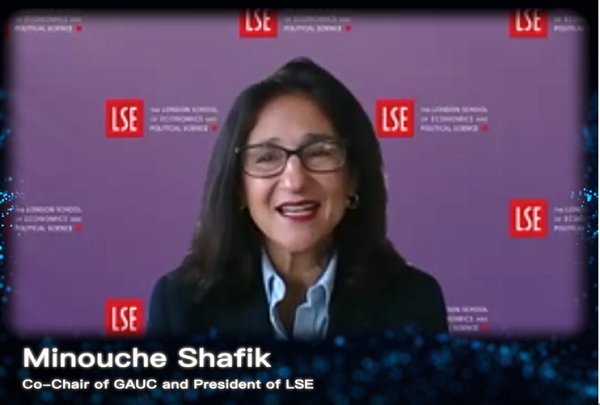
Minouche Shafik, Co-Chair of GAUC and Director of London School of Economics and Political Science, said that this summit is an opportunity to draw attention to the interconnection between climate change and the other UN Sustainable Development Goals, as well as the transforming impact that climate change can have, particularly in areas like food and health, transportation, energy, nature and biodiversity.
She added that it's critically important for younger generations to take on a lead and make their voice heard in this race to zero carbon to protect the future of the planet.
“And of course, universities prepare the leaders of tomorrow, and students have been vocal advocates for urgent action at universities and in their later professional lives,” Shafik concluded.
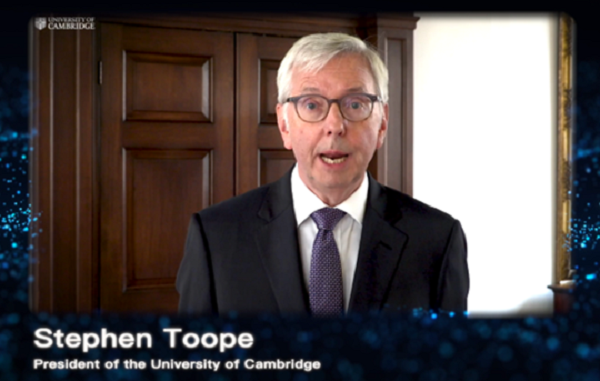
Stephen Toope, President of the University of Cambridge, said that he would like to emphasize the value of academic institutions coming together through networks such as GAUC and events such as the Global Youth Forum.
“Each of our institutions is at the center of extensive partnership networks. It's through these networks that our expertise and knowledge is felt. By drawing these relationships close, working in partnership with friends and colleagues from across the world, we can help address global challenges like climate change,” said Toope.
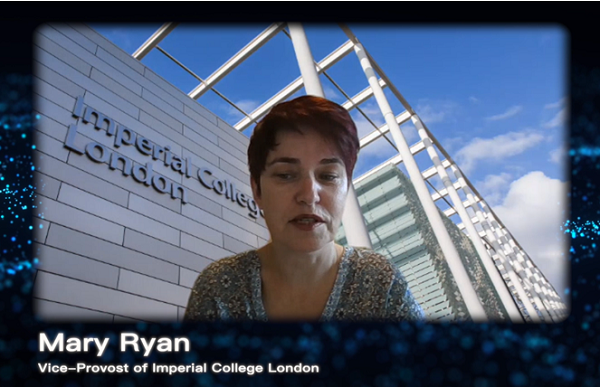
Mary Ryan, Vice-Provost of Imperial College, said: “Nothing is more pressing than climate emergence. We must all work together to secure a sustainable and equitable future for all. Today, you are leading the way. This Summit is part of the change. I wish you all a productive and enjoyable summit. We all hope for a youth's commitment for real action arising from COP26.”
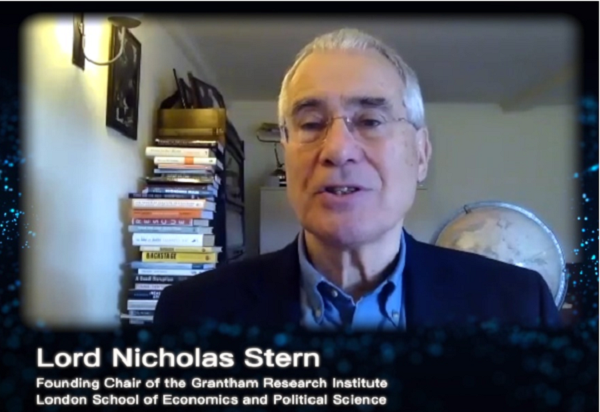
Lord Nicholas Stern, Founding Chair of the Grantham Research Institute at London School of Economics and Political Science, said that young people should be demanding action, and strongly demanding action because it's their future.
According to him, we have to look at things as a whole. Of course, investing in that natural capital does give us negative emissions,but it is about so much more. Strands of integration across climate, biodiversity, and natural capital are extremely important.
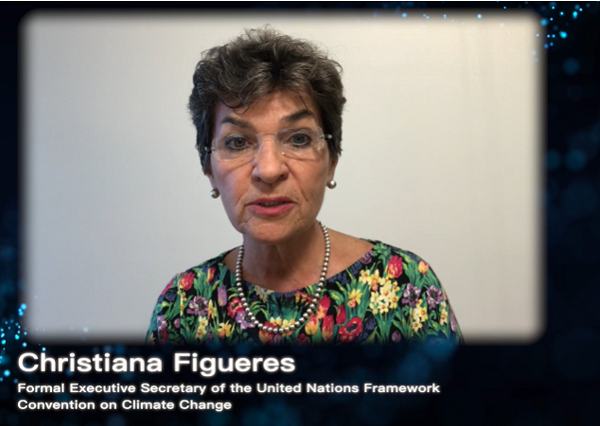
Christiana Figueres, Formal Executive Secretary of the United Nations Framework Convention on Climate Change, said that we have to reduce carbon emission by half by 2040 and half again by 2050, while actively restoring nature until we get to net zero emissions by 2050. This is the only path that allows us to pursue economic growth and shared health and prosperity for all.
“Friends, you are the beginning of the Anthropocene era. You are the ancestors of everyone who will live in that period. Today you are writing the future history of human presence on this planet,” she added.
From Institute of Climate Change and Sustainable Development, Tsinghua University










